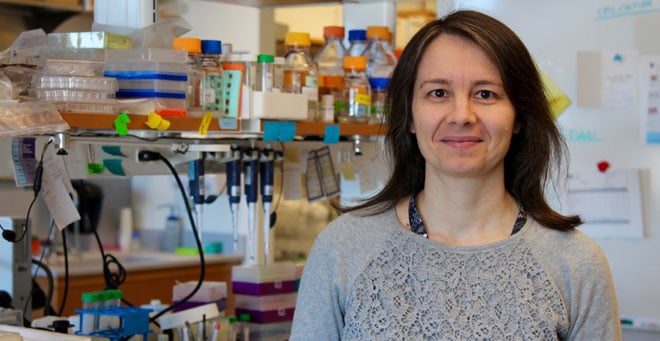 |
|
|
Sandra Almeida, PhD |
Sandra Almeida, PhD, research assistant professor of neurology, has received an Alzheimer’s Association New Investigator Research Grant to study how variations in a gene along a specific neural pathway increase the risk of developing Alzheimer’s disease and frontotemporal dementia (FTD).
“I’m excited to receive this award. It will help us start our project and see what we can find. We need to understand exactly what is happening at the molecular level,” Dr. Almeida said.
Almeida has developed an approach to study the impact of CHMP2B genetic variations on the molecular mechanisms common to Alzheimer’s and FTD. The CHMP2B gene is important because it belongs to a cellular pathway that helps to clear abnormal protein build-up in the brain, a process necessary to prevent the accumulation of potentially toxic proteins in the brain that can lead to various forms of dementia.
Using tissue samples collected from patients, which are cultured and reprogrammed into induced pluripotent stem cells, or iPSCs, Almeida and her team will genetically modify the cells in laboratory dishes by introducing the specific CHMP2B variations into the healthy cells using the CRISPR gene editing system. She will generate new cell lines and study the neurons to measure the impact of these variations on the production of other molecules important for the breakdown and removal of abnormal proteins in the brain. In particular, she will examine how CHMP2B variations impact the accumulation of beta-amyloid and nerve cell health and function.
A better understanding of these mechanisms could lead to new therapeutics that target these processes to help slow or prevent the progression of multiple dementias, including FTD and Alzheimer’s disease.
“FTD is so heterogeneous that you won’t find one molecular therapy that will fix it all. I know it’s a rare mutation, but it’s part of a pathway where we’ve found a mutation in several proteins and that we’ve identified as being important to disease. If we know what’s going on, maybe we can apply this knowledge to other disease research,” Almeida said.